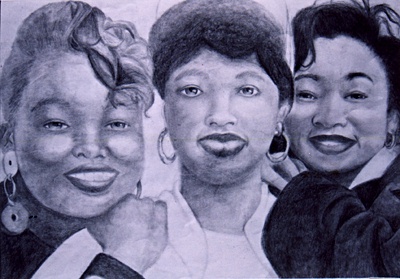All Nonfiction
- Bullying
- Books
- Academic
- Author Interviews
- Celebrity interviews
- College Articles
- College Essays
- Educator of the Year
- Heroes
- Interviews
- Memoir
- Personal Experience
- Sports
- Travel & Culture
All Opinions
- Bullying
- Current Events / Politics
- Discrimination
- Drugs / Alcohol / Smoking
- Entertainment / Celebrities
- Environment
- Love / Relationships
- Movies / Music / TV
- Pop Culture / Trends
- School / College
- Social Issues / Civics
- Spirituality / Religion
- Sports / Hobbies
All Hot Topics
- Bullying
- Community Service
- Environment
- Health
- Letters to the Editor
- Pride & Prejudice
- What Matters
- Back
Summer Guide
- Program Links
- Program Reviews
- Back
College Guide
- College Links
- College Reviews
- College Essays
- College Articles
- Back
Women of Ivory Coast MAG
My dad comes out of his room to find my brother, Adam, and me watching TV. He looks at both of us and then says, “Fatim, take out the garbage.” Without any argument I grab the bag and walk down the stairs, but I quietly fill with rage as I ask myself, Is this fair? Adam was sitting right there doing nothing.
I am a 13-year-old girl who was born and raised on the Upper West Side of New York City, but my parents are from Ivory Coast. I live on 116th Street; Africans, African-Americans, Hispanics, and Columbia University students are all around, blasting music, selling ginger juice, rushing to class. But to notice what really goes down on 116th Street, you have to live there. When I open the door to my apartment and look to my right, I see men eating at the big wooden dining room table. When I look to my left, I see women sitting on small chairs, gathered around a bowl of food warming the top of a small table. In my culture, the women are not allowed to eat with the men. A thousand questions explode in my mind: Do you think women are not human too? Why do you act this way? Sometimes I feel like the men in my community treat women more like dogs than people.
The worst part is that Ivorian women defend their subordinate status. When a law was passed two years ago that improved women’s legal and financial status in Ivory Coast, women spoke out in huge numbers against the “Americanization” of the country.
Behind closed doors, I’ve started speaking out against the way my community treats women. Recently, after a family dinner at my cousin’s house, my uncle asked my 7-year-old female cousin, “Could you sweep up and wash the dishes please?” I looked at my small cousin and became extremely upset. Instead of just standing there, I said, “I’ll do it, Mariam. You can’t even reach the sink. Go watch TV.” I did the dishes and swept the house, then told my mother what had happened. “Sometimes men are crazy,” she said.
I agree with her. But I also know that she loves her culture – and so do I. I love the music, the food, and the parties. I love listening to Serg Beynaud, eating aloco and poisson frit, and modeling African clothing. I walk up and down the runway smiling, but I also think a lot.
We women are human. We feel and experience the same things men do. We shouldn’t pretend that we don’t. My brother has two legs, two arms, one nose, two eyes, and one mouth. He isn’t disabled in any way, which means that if I can do a “lady’s job,” so can he. Come to think of it, there should be no such thing as a “lady’s job.”
Some women don’t want change because they are afraid of losing what they love the most: their families. In some cultures, if you don’t follow the rules, you’re exiled. But, in the U.S. at least, we can work together toward change. As Chimamanda Adichie, a Nigerian author, said in her TEDxTalk: “Culture does not make people; people make culture.”
I love being Ivorian, but there are things in the Ivorian culture that I would like to help change – in order to be an even prouder Ivorian.

Similar Articles
JOIN THE DISCUSSION
This article has 0 comments.
